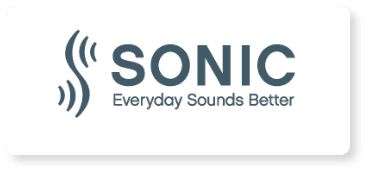Hearing Aids
in Pittsburgh
Hearing Aid Styles
We carry all styles of hearing aids for sale, including the following:
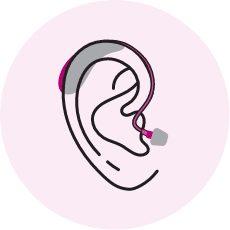
Receiver-in-Canal (RIC)
Receiver-in-Canal hearing aids are reliable and convenient. These have a lightweight feel to them and a flexible fit.
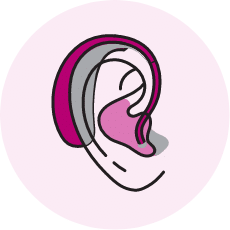
Behind-the-Ear (BTE)
Behind-the-Ear hearing aids put you in control with customizable fit options, wireless connectivity, and easy volume control.
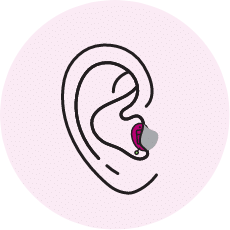
Completely-in-Canal (CIC)
Completely-in-Canal hearing aids are sleek and subtle. This technology is molded to the unique contours of your ear for a superior fit that offers a natural look and hearing experience.
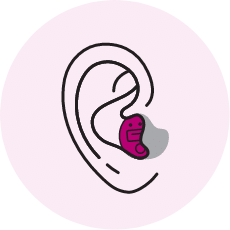
In-the-Canal (ITC)
In-the-Canal hearing aids are discreet and have a glasses-friendly fit with external controls.
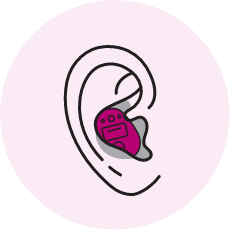
In-the-Ear (ITE)
In-the-Ear hearing aids are custom molded for you. They are powerful and comfortable, allowing for all-day use.
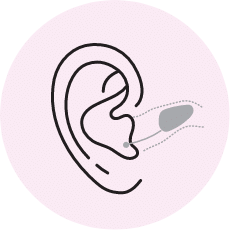
Invisible-In-the-Canal (IIC)
Invisible-In-the-Canal hearing aids are the smallest hearing instrument available. These are for people who want ultimate discretion while benefiting from the natural acoustics of the external ear.
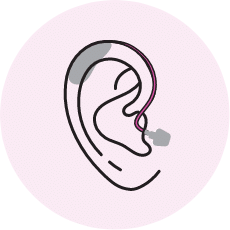
Open BTE
Open BTE are behind-the-ear devices that have an open fit. This type of hearing aid provides amplification via a small tube inserted into the ear canal.
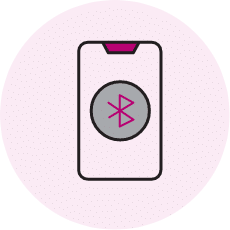
Remote
Remote hearing aids feature Bluetooth capabilities and can be connected directly to your smartphone. With remote hearing aids we can provide adjustments to your hearing prescription remotely, so you don’t have to leave your home.
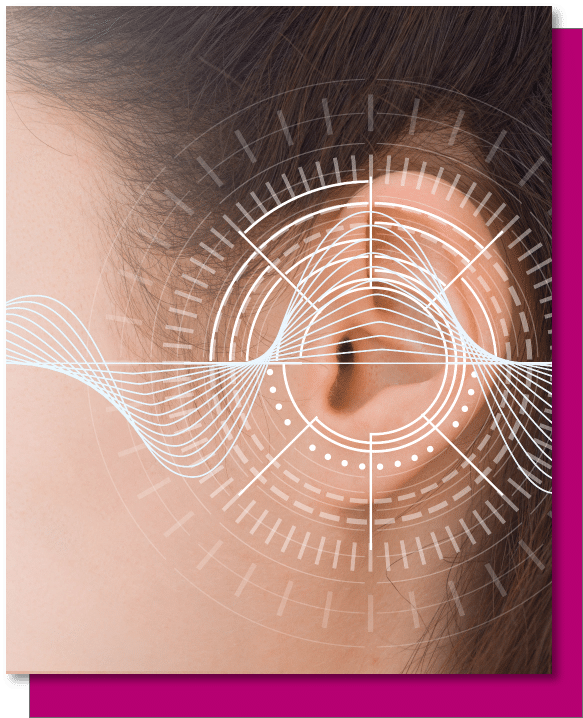
Hearing Aid
Technology
At our audiology and hearing aid center in Pittsburgh, we stay up to date with the latest hearing aid technology. Hearing technology is no longer big and bulky. Instead, most devices are small, sleek, and barely noticeable to other people. There are even invisible hearing aids that sit inside your ear canal.
We carry devices that have remarkable features, such as Bluetooth hearing aids, rechargeable batteries, and even instruments with artificial intelligence! We offer the best Bluetooth hearing aids that can connect to all of your favorite smart devices. No matter what your hearing needs are, we have a solution for you.

Featured Technology
Life-Changing Innovation from Oticon
Oticon Intent™
Facing the daily challenge of hearing conversations in noisy environments can be difficult for individuals with hearing loss. Traditional hearing aids understand sound, but not you. Oticon Intent™ is the first hearing aid that understands what you want to listen to.
Using revolutionary BrainHearing™ technology, Oticon Intent™ uses your movements, the environment, and the conversation around you to recognize what you want and need to listen to, adapting seamlessly to deliver truly personalized support. With Bluetooth connectivity and rechargeable power, Oticon Intent™ offers life-changing benefits.*
Benefits of Oticon Intent™:
- Clarity: Hear more clearly, stay more engaged, and enjoy life fully
- Confidence: Feel confident in every moment, from navigating the room to talking with a group of friends
- Cognition: Helps keep your mind focused, alert, and engaged with what matters most
*Expected use time for rechargeable battery depends on use pattern, active feature set, hearing loss, sound environments, battery age and wireless accessories.
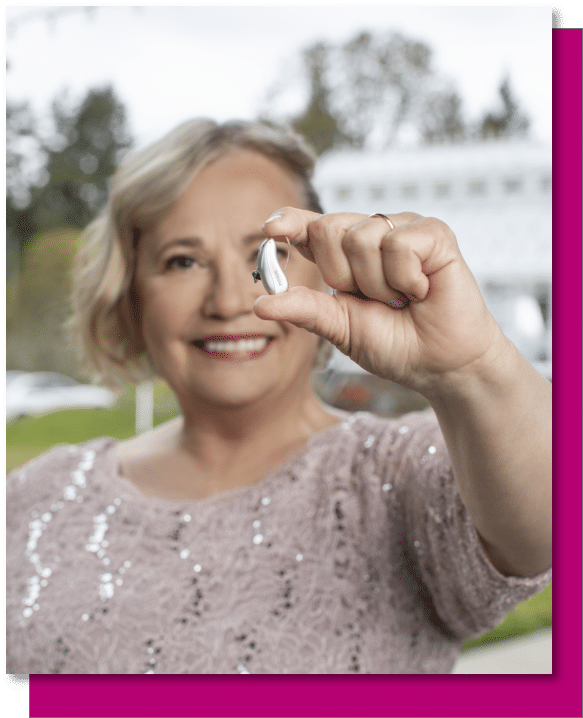
Phonak Audéo
Lumity

*Appleton, J. (2020) AutoSense OS 4.0 – significantly less listening effort and preferred forspeech intelligibility. Phonak Field Study News retrieved fromwww.phonakpro.com/evidence, accessed August 2022.


Signia AX

Experience a brilliant fit with the new Signia AX hearing aids. Hear better in complex listening situations like outside on a windy day or talking in a noisy room. With the upgraded enhancements of the Augmented Xperience (AX) platform, you can hear even better with less effort. Signia AX comes in a full line of budget friendly options, making Augmented Focus split-processing technology widely more accessible. Enjoy a truly unique listening experience with Signia AX.
Additional features of Signia AX include:
- Bluetooth connectivity, health tracking, and Signia app
- Outstanding speech clarity in a variety of environments
- Upgraded eWind Screen
- Improved AX Soundscape Processing

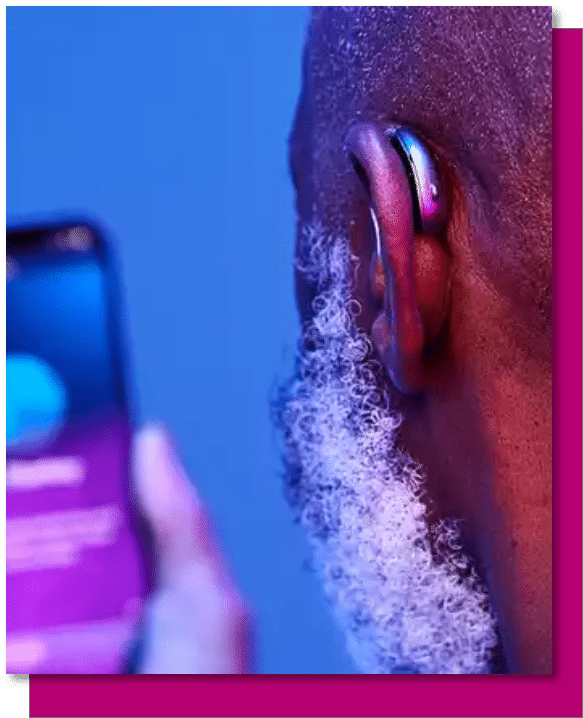
Starkey
Genesis AI

Experience a new beginning for better hearing with Starkey Genesis AI hearing aids. The all-new Genesis AI hearing aid mimics the cerebral cortex of the brain to fill in the gaps quickly and accurately when our hearing is impaired. The Genesis AI is packed with the most sophisticated technology, to deliver a more true-to-life sound quality than ever before. Designed to help wearers hear soft sounds, you can now hear with less effort. Experience the best performing hearing aids for yourself with Genesis AI!
Additional features of Genesis AI include:
- Discreet, ergonomic design
- All-day rechargeability
- Built-tough durability
- Versatile connectivity

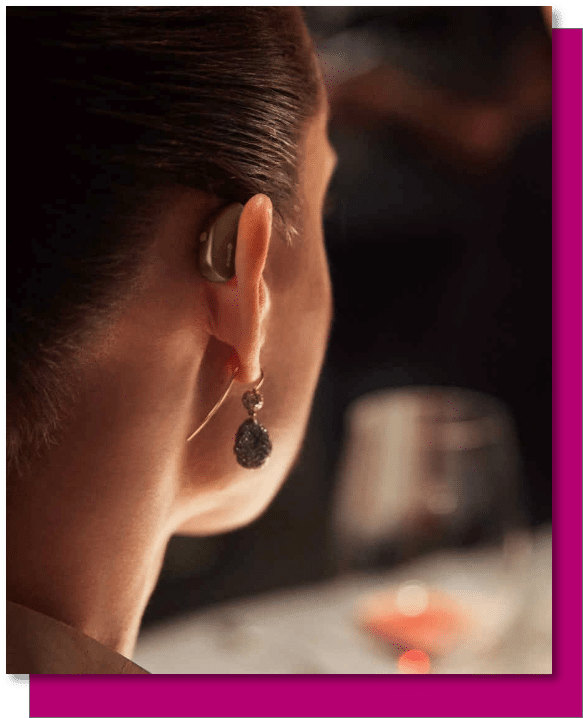
Widex Custom™

Every ear is different, but that doesn’t mean everyone shouldn’t enjoy the superior Widex Unique sound experience. The new, redesigned Widex Custom in-the-ear hearing aid is small but powerful. Based on the Unique chip, Custom has the largest sound window of any kind of hearing aid in the market. Widex Custom automatically provides optimal clarity, comfort, and audibility in every situation – without you having to manually adjust the hearing aid.
Stay connected to your favorite devices with hands-free, Bluetooth connectivity. Widex Custom provides a perfect fit with superior sound quality. Experience the difference of full, clear sound with the Widex Custom!












